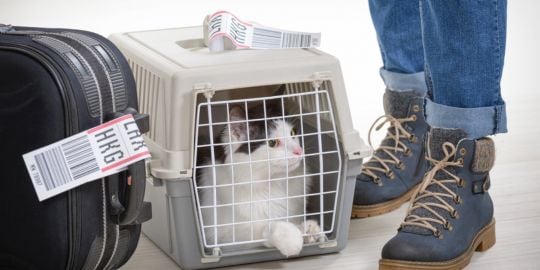Choosing your destination
Taking into account the global health crisis, the success of your move abroad will largely depend on your choice of destination. Today, no country is really immune to COVID-19, even though many of them are currently lifting some of their border restrictions. Obviously, you won't be willing to settle in countries with the highest peaks of contamination. You will rather consider a country that has managed to contain the epidemic. Also, consider the safest way to travel abroad. If you are in Europe, for example, it's better to move to a nearby country so that you can avoid boarding a flight; you can just reach there through a few hours drive. However, if you're looking to move to the other side of the world, then it is better either to wait for the right time.
Reinvent your career
If you're looking to boost your career abroad, there are several criteria to take into account in this period of global health crisis. Let's face it; the financial and social crisis resulting from the pandemic is likely to affect many sectors, such as tourism, in a significant way. Therefore, you should think carefully about the career prospects available in your field before actually taking the leap. For many of you, this might be the perfect opportunity to reinvent yourselves. Which sectors will emerge or develop further after the crisis? Do you have the skills required for the position you are applying for, or should you learn new skills before getting started? Depending on your motivations and your intended duration of stay abroad, make sure to ask yourself the right questions and take a broad look at the range of prospects available.
Postpone your studies
If you were looking to study abroad this year, your project has probably been compromised by the global health crisis. However, this doesn't mean that you should give up on your plans. For example, consider enrolling for the next semester, or next year? You will thus have plenty of time to think about your professional ambitions and on the most promising fields after the crisis. European students, in particular, usually go for a semester abroad. This is an interesting option for those who were aspiring to immersion in another culture and learning a foreign language.
What about retiring abroad?
According to the World Health Organisation, children and the elderly, are the most vulnerable to coronavirus, so it might not be the right time to retire abroad. However, if you still wish to travel, choose a country with a warm climate and an efficient healthcare system. Also, it's best to use land transport if you drive, rather than booking a flight where you will be in contact with people from different origins. That said, consider moving to a neighbouring country so that you can move back home quickly in case of major issues.
Get insured
Subscribing for an international health insurance is essential if you're relocating abroad. Regardless of the length of your stay, especially in this time of global health crisis, you will likely need healthcare. Depending on the country you are settling in, the healthcare system can be expensive -- hence the importance of getting a proper insurance plan. However, make sure that your health insurance is recognised in your host country and that it provides coverage for COVID-19. Also, if you are moving abroad with your family, make sure that everyone is covered.
Budget!
Budgeting is an essential step of any project. Today, while the global health crisis is leading to a real financial and employment crisis, it is more important to have a backup plan. If you are still moving abroad, you've probably got a new job offer or a solid bank account. However, it is strongly recommended that you avoid making extra expenses. For example, if you're moving alone, you don't really need to hire a huge house or apartment for your own; a room or studio would do. Consider all the little ways in which you could save money.
Be mentally prepared
Last but not the least. Mental health is another significant aspect of expatriation. Before taking the leap, make sure you are really ready to start all over again away from everyone in the current context! Whether we agree or not, the coronavirus pandemic has had a significant impact on everyone's mental health. The lockdown in many countries has led to people suffering from the "cabin or prisoner syndrome". You should, therefore, ask yourself the right questions to find out whether you are ready to take that risk or just wait for things to get better after the pandemic.
















